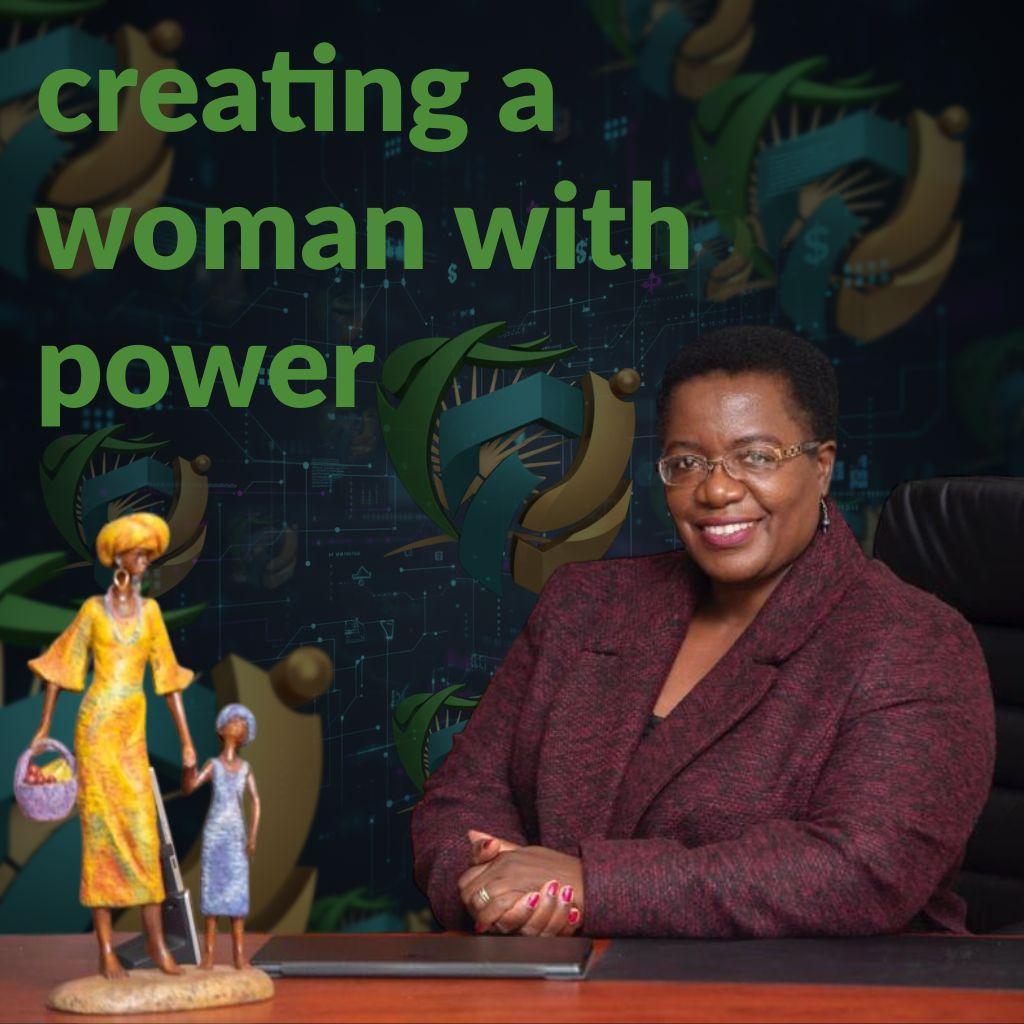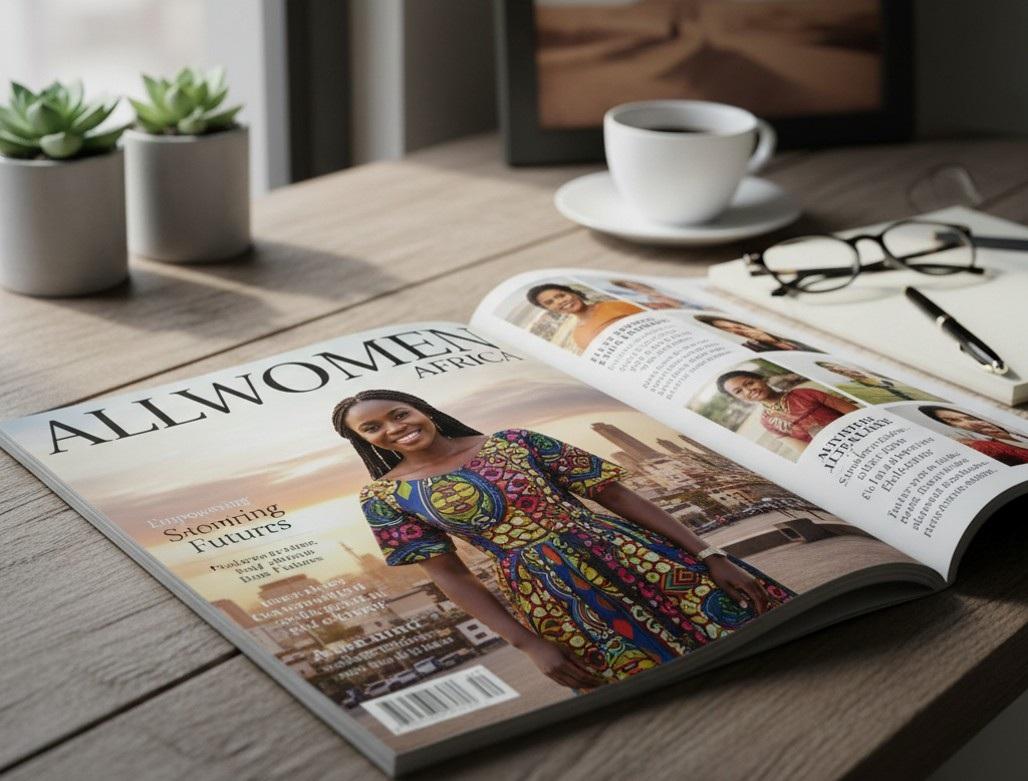The psychology of money

An African woman’s journey to financial freedom
By Dr. Mandas Marikanda
Money is not just a means of exchange, it is a mirror. It reflects our fears, values, hopes and the stories we tell ourselves about what we deserve. For the African woman, money carries an even deeper psychology, shaped by history, culture and survival. It is not merely a financial tool; it is emotional, spiritual, and generational.
To understand the psychology of money in the African context, we must unearth the subconscious forces that shape how we earn, spend, save and invest. We must confront the narratives inherited from colonization, patriarchy, poverty and resilience — and rewrite them to reflect the woman we are becoming: self-reliant, visionary and abundant.
1. The Inherited Psychology — “I Am Not Supposed to Have Much”
For generations, African women were taught that wealth belonged to others — to men, to colonizers, to leaders, to systems beyond their control. Many grew up hearing that money was “hard to get,” that it corrupted good people, or that it would bring conflict into the home.
This creates what psychologists call limiting money scripts: subconscious beliefs that govern our financial behavior. When you believe you are not meant to have much, you self-sabotage. You underprice your business, overspend to prove worth, or give away what you have out of guilt for having more than others.
We must replace this scarcity script with a new one: “I am a steward of abundance.” Wealth is not selfish; it is strength. It allows us to feed nations, educate children, and build futures where women’s voices fund change rather than beg for it.
2. The Emotional Burden of Money — Guilt, Fear, and Identity
Money is deeply emotional. For the African woman, financial decisions are rarely individual — they are communal. You do not save alone; you save for your family, your siblings, your children, your parents. Every cent carries the weight of responsibility.
This creates emotional conflict: the tension between personal progress and collective expectation. You want to grow, but you fear being called “proud.” You want to invest, but you fear being seen as greedy. You want to say “no,” but the culture of care whispers, “If you have, you must share.”
This is noble — but dangerous if unbalanced. Because when a woman’s cup is empty, she cannot pour into others. Financial self-care is not selfishness; it is sustainability. We must learn to help from overflow, not from exhaustion.
3. The Gendered Economy — The Price of Invisible Labor
African women work — hard. They manage homes, farms, informal businesses, and still shoulder emotional labor unseen by any GDP report. Yet the unpaid economy of women’s labor remains undervalued, leaving millions financially disempowered despite being the backbone of Africa’s productivity.
This affects the psychology of worth. If your work is not paid, you may subconsciously believe it has less value. This shows up in how women negotiate salaries, charge clients, or ask for capital.
We must change this. Every African woman must internalize a new truth: value is not defined by validation but by impact. You deserve to earn for your brilliance, your time, and your contribution. The economy thrives when women are economically visible.
4. The Colonial Hangover — The Currency of Dependence
Colonialism taught Africans to depend — on foreign goods, aid, systems, and approval. Economically, this dependency lingers in how we perceive value: imported products are often seen as better; Western investment is seen as more legitimate.
In the psychology of money, this translates to a trust deficit: we trust money more when it comes from elsewhere. Yet, our local wealth — our land, our co-operatives, our ideas — is the foundation of a self-sufficient Africa.
For African women, breaking this psychological chain means redefining wealth through cultural and indigenous lenses. Wealth is not just cash in a bank. It is access to land, knowledge, relationships, and collective capital. It is our ability to create — not just consume.
5. The Spiritual Layer — Money as Energy
African spirituality has always understood that everything is interconnected — including money. In traditional African philosophy, wealth was not meant to be hoarded but circulated. Money was energy that flowed through the community, blessing many as it moved.
This worldview still holds profound truth. When women build co-operatives, savings groups, and investment circles, they reawaken an ancient principle: ubuntu — “I am because we are.” But in modern times, ubuntu must evolve from dependency to empowerment.
Let us circulate wealth consciously — investing in one another, buying from one another, and ensuring that the energy of money fuels progress, not poverty.
6. The Mindset Shift — From Scarcity to Sovereignty
Financial freedom begins in the mind. Before a woman opens a savings account, she must first open her mind to the possibility of wealth.
Scarcity says: “I will never have enough.”
Sovereignty says: “I create value; therefore, I attract abundance.”
This shift is not magical thinking; it is practical psychology. When you see yourself as a creator, not a consumer, you begin to make different choices. You invest. You learn. You plan. You collaborate. You build legacies, not just livelihoods.
The African woman must now step into her role as an economic sovereign — no longer waiting for permission to prosper.
7. The Future — Financial Literacy as Liberation
The psychology of money is not just about how we feel — it is about what we know. Education remains the most powerful antidote to financial disempowerment. Financial literacy is no longer a luxury; it is liberation.
When women understand interest rates, investments, and insurance, they stop being victims of circumstance and start becoming architects of change. Every dollar becomes a soldier of purpose. Every business, a pillar of transformation.
Through institutions like the Zimbabwe Women’s Microfinance Bank, and initiatives like AllWomen.africa, we are rewriting the script — not only teaching women to manage money, but to master it.
Final Thoughts — Money as a Mirror of Mindset
The psychology of money reveals that wealth is not external — it begins within. The African woman’s greatest asset is not what she owns, but what she believes.
When she believes she deserves abundance, she builds empires.
When she values her labor, she transforms economies.
When she invests in her sisters, she secures generations.
The next chapter of Africa’s story will be written by women who understand that money is not the goal — impact is. But to reach that impact, we must first heal our relationship with money, embrace its power, and use it to build the Africa we dream of.
Because the real revolution is not in what we earn — it’s in how we think.








